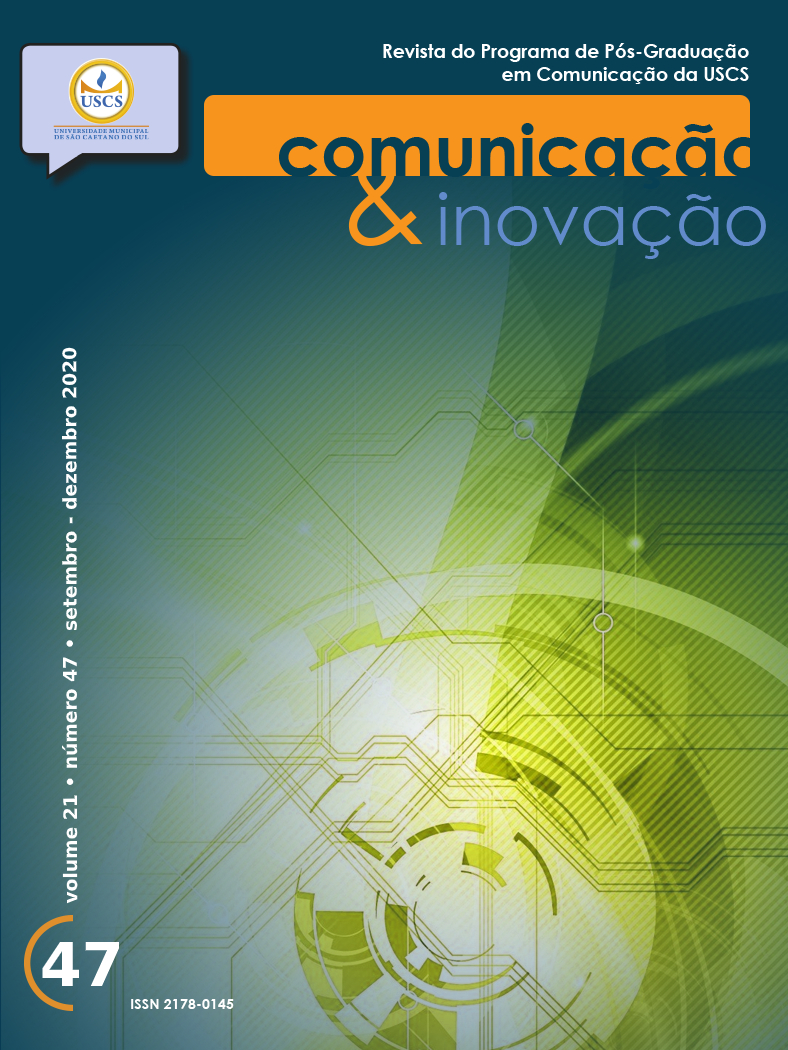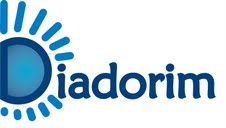O vírus do morcego: fake news e estereotipagem dos hábitos alimentares chineses no contexto da Covid-19
The bat virus: fake news and stereotyping of Chinese eating habits in the context of Covid-19
Keywords:
PortuguêsAbstract
This article analyzes the representation of Chinese eating habits in the context of Covid-19 by the Saúde Sem Fake News checks. Doing a critical discourse analysis, we argue that the otherness conflict between Westerners and Easterners creates the stereotype of “crazy” Chinese, that eats wild animals and, because of that, is responsible by the new coronavirus. We conclude that the idea of a “Chinese virus” is constructed through fake news, which is a biological guerilla strategy promoted by China for a possible conquest of the World.
Downloads
References
ALBUQUERQUE, Afonso de; QUINAN, Rodrigo. Crise epistemológica e teorias da conspiração: o discurso anti-ciência do canal “professor terra plana”. Revista Mídia e Cotidiano, v. 13, n. 3, dez. 2019, p. 83-104.
BHABHA, Homi. O local da cultura. Belo Horizonte: Ed. UFMG, 1998.
BARDIN, Laurence. Análise de conteúdo. São Paulo: Edições 70, 2016.
BECK, Ulrich. Sociedade do risco: rumo a uma outra modernidade. São Paulo: Editora 34, 2010.
CAJAIBA, Reinaldo Lucas; SILVA, Wully Barreto da; PIOVESAN, Paulo Ricardo R. Animais silvestres utilizados como recurso alimentar em assentamentos rurais no município de Uruará, Pará, Brasil. Desenvolvimento e Meio Ambiente, v. 34, ago. 2015, p. 157-168.
DYER, Richard. The matter of images: essays on representation. Londres: Routledge, 1993.
GARCIA, Marcelo. Disseram por aí: deu zika na rede! Boatos e produção de sentidos sobre a epidemia de zika e microcefalia nas redes sociais. 2017. 237 f. Dissertação (Mestrado em Informação Científica e Tecnológica em Saúde), Fundação Oswaldo Cruz, Rio de Janeiro, Brasil, 2017.
GIDDENS, Anthony. As consequências da modernidade. São Paulo: Editora Unesp, 1991.
GUO, Xiduo (???). ???????????????. ????, v.17, n.3, 2003
HALL, Stuart. Cultura e representação. Rio de Janeiro: Apicuri/PUC-Rio, 2016.
_____. Quem precisa de identidade? In: SOUZA, Thomaz Tadeu de (org.). Identidade e diferença: a perspectiva dos Estudos Culturais. Rio de Janeiro: DP&A, 2000.
MACPHAIL, Theresa. The Predictable Unpredictability of Viruses and the Concept of “Strategic Uncertainty”. In: MACPHAIL, Theresa. The Viral Network: a pathography of the H1N1 influenza pandemic. Ithaca, New York, The United States: Cornell University Press, 2014, p. 132-151.
MASON, Katherine M. H1N1 is not a Chinese virus: the racialization of people and viruses in post-SARS China. Studies in Comparative International Development, v. 50, 2015, p. 500-518.
MONARI, Ana Carolina Pontalti; BERTOLLI FILHO, Claudio. Saúde sem Fake News: estudo e caracterização das informações falsas divulgadas no Canal de Informação e Checagem de Fake News do Ministério da Saúde. Revista Mídia e Cotidiano, v. 13, n. 1, 2019, p. 160-186.
PENNYCOOK, Gordon; RAND, David G. Fighting Misinformation on Social Media Using Crowdsourced Judgments of News Source Quality. Proceedings of the National Academy of Sciences, 2019. Disponível em: http://dx.doi.org/10.2139/ssrn.3118471. Acesso em: 23 ago. 2020.
PICKERING, Michael. Stereotyping: politics of representation. Londres: Palgrave Macmillan, 2001.
RIBEIRO, Vânia Maria França; CARVALHO, Yuri Karaccas de; PERUQUETTI, Rui Carlos; MEDEIROS, Luciana dos Santos; FREITAS, Henrique Jorge de. Consumo e comercialização de carnes silvestres: potencial econômico para a Amazônia Ocidental. Journal of Amazon Health Science, v. 2, n. 1, 2016. Disponível em: https://bit.ly/31mqT88. Acesso em: 23 ago. 2020.
ROBERTO, Katherine J.; JOHNSON, Andrew F.; RAUHAUS, Beth M. Stigmatization and prejudice during the COVID-19 pandemic. Administrative Theory & Praxis, 2020. Disponível em: https://bit.ly/3j9Zixb. Acesso em: 23 ago. 2020.
ROSELLO, Marine. Declining the stereotype: ethnicity and representation in French cultures. Hanover: University Press of New England, 1998.
SACRAMENTO, Igor; MACHADO, Izamara Bastos. A imigração como risco para a saúde: uma análise das representações do imigrante africano na cobertura da Folha de S. Paulo sobre o ébola. Comunicação & Sociedade, n. 28, 2015, p. 25-47.
__________________; PAIVA, Raquel. Fake news, WhatsApp e a vacinação contra febre amarela no Brasil. MATRIZes, v. 14, n. 1, jan-abri. 2020, p. 79-106.
SILVA, Sandra. Teorias da conspiração: Sedução e Resistência a partir da Literacia Midiática. 2010. 87 f. Dissertação (Mestrado em Ciências da Comunicação), Faculdade de Letras da Universidade do Porto, Porto, Portugal, 2010.
SAÚDE SEM FAKE NEWS. “Dados sobre coronavírus não divulgados e os hábitos alimentares chineses”. Disponível em: https://bit.ly/3aP2Hi2. Acesso em: 12 ago. 2020.
______________________. “Sopa de morcego”. Disponível em: https://bit.ly/3lcMisr. Acesso em: 12 ago. 2020.
VAN DIJK, Teun. Discurso e poder. São Paulo: Editora Contexto, 2008.
WAISBORD, Silvio. Truth is what happens to news: on journalism, fake news, and post-truth. Journalism Studies, v. 9, n. 13, 2018, p. 1866-1878.
________________. Fake health news in the new regime of truth and (mis)information. Reciis – Revista Eletrônica de Comunicação, Informação e Inovação em Saúde, v. 14, n. 1, jan-mar. 2020, p. 6-11.
Downloads
Published
How to Cite
Issue
Section
License
Copyright (c) 2020 Igor Sacramento, Ana Carolina Pontalti Monari, Xuewu Chen

This work is licensed under a Creative Commons Attribution-NonCommercial-NoDerivatives 4.0 International License.
Conforme consta nas normas da revista, o envio de artigos e textos solicitando a apreciação com a finalidade de publicação na Comunicação & Inovação, configura a cessão de direitos autorais.
No caso de fotos e imagens, o autor deve providenciar documento que ateste a permissão em termos de direitos autorais.





